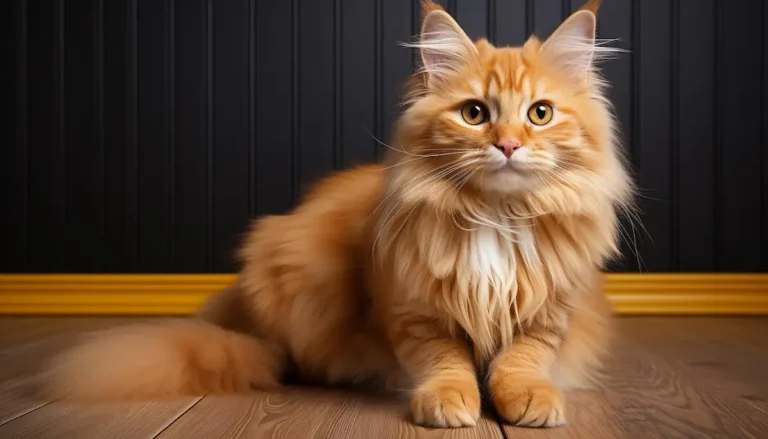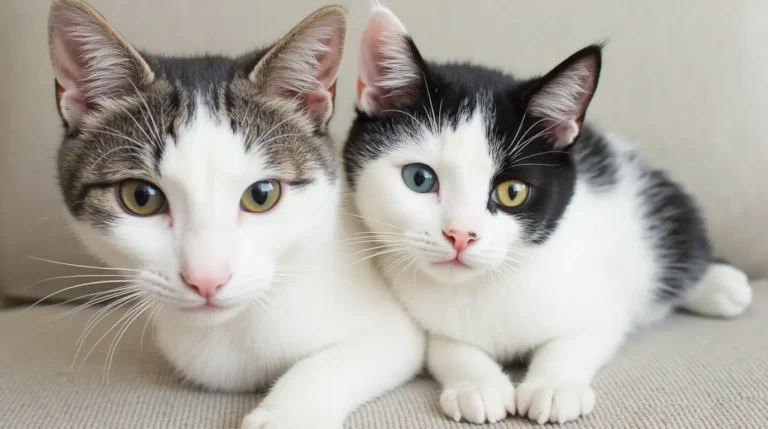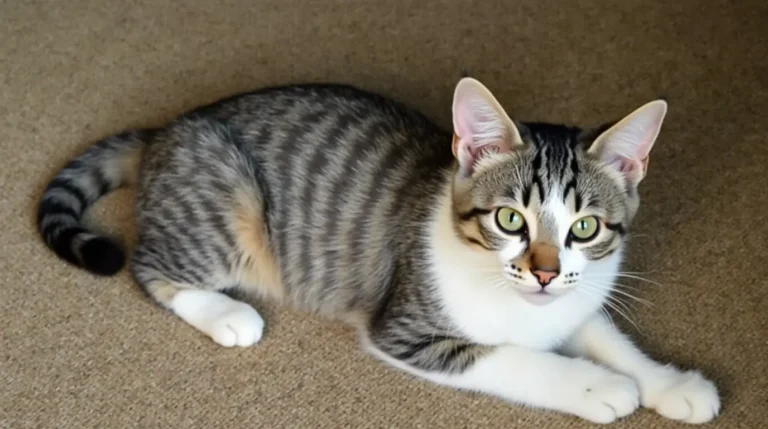Why Are Maine Coon Cats So Big? Discover the Secrets Behind Their Massive Size
Why are Maine Coon cats so big? Have you ever wondered why these majestic felines seem to tower over other cats? Known for their impressive size, Maine Coon cats are often described as the “gentle giants” of the cat world. But what makes them so big?
In this article, we’ll explore the factors that contribute to their massive size, from their genetics to their diet, and reveal the secrets behind their growth. Keep reading to discover why Maine Coons are truly unique in the feline world!
1. Why Are Maine Coon Cats So Big? Exploring the Giants of the Cat World
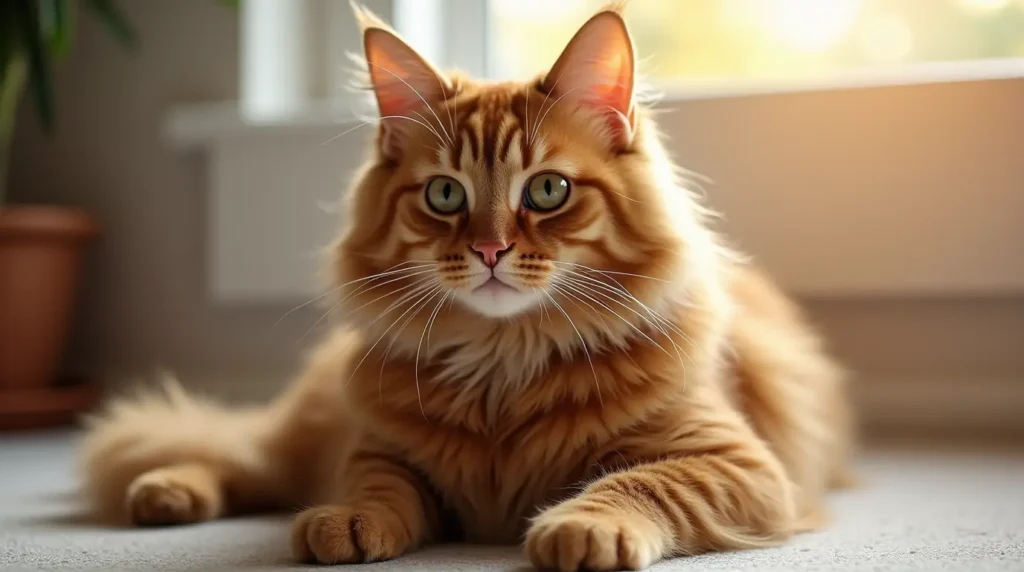
To understand why Maine Coon cats are so large, it’s essential to look at several key factors that contribute to their unique growth. These factors include genetics, evolutionary history, and growth patterns. Let’s break it down.
Related: Maine Coon Cat Price: Why This Majestic Breed Can Be Expensive
Genetic Factors: The Foundation of Their Size
The size of Maine Coon cats is primarily determined by their genetics. Unlike many other cat breeds, Maine Coons have a natural genetic predisposition to grow large. While there isn’t a single “giant gene,” researchers believe that the combination of several inherited traits—such as long legs, a sturdy frame, and a thick, luxurious coat—leads to their large stature.
These cats are descendants of early long-haired cats brought to North America by sailors in the 19th century. Over time, natural selection favored larger cats, which could endure the harsh winters in Maine. Their size became an evolutionary advantage for survival, as bigger cats were better equipped to hunt and protect themselves in cold, difficult conditions.
2. How Big Do Maine Coon Cats Actually Get?
When it comes to size, the Maine Coon is nothing short of impressive. On average, these cats are significantly larger than most other domestic breeds.
- Weight: Male Maine Coon cats can weigh anywhere between 13-18 pounds (5.9-8.1 kg), and some can even exceed 20 pounds (9 kg). Females tend to be a bit smaller, typically weighing between 8-12 pounds (3.6-5.4 kg).
- Length: Maine Coons are also known for their long bodies. They can reach up to 30-40 inches (76-101 cm) in total length, including their bushy tail, which can add an additional 12-14 inches (30-35 cm).
- Height: At the shoulder, they stand about 10-16 inches (25-40 cm) tall, but some individuals are noticeably taller, particularly when they have longer legs.
3. The Slow Growth Process of Maine Coon Cats
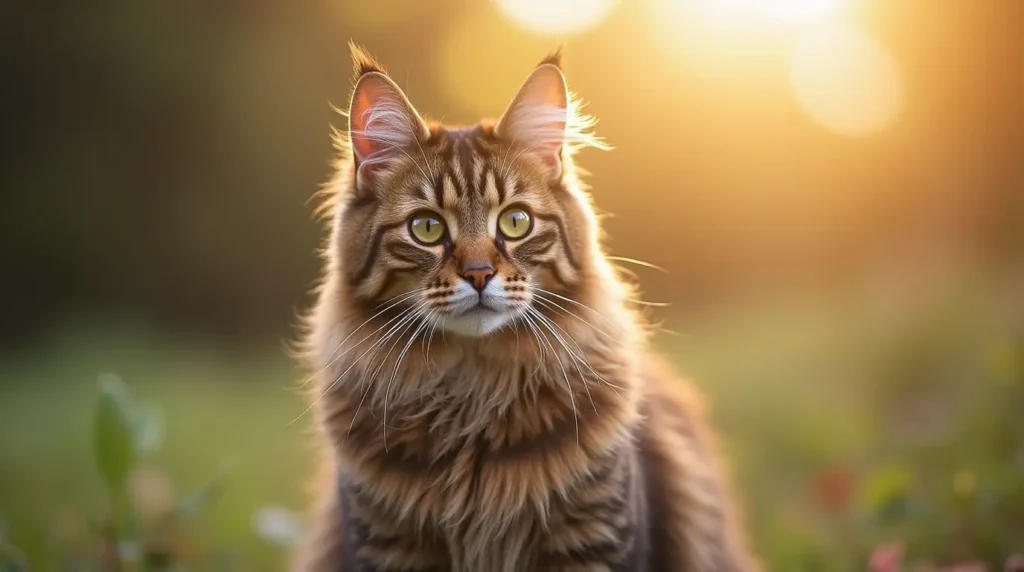
One of the most fascinating aspects of Maine Coon cats is their slow growth rate. Unlike many smaller cat breeds that reach full size in 1 to 2 years, Maine Coons continue to grow until they are about 3 to 5 years old. This slow maturation process contributes to their large, muscular frames.
- Kittens (0-6 months): During the first 6 months, Maine Coon kittens grow quickly, but they won’t show their full size until later in life. It’s crucial to feed them a high-quality diet rich in protein and nutrients during this stage.
- Adolescents (6 months – 2 years): Between 6 months and 2 years, Maine Coons continue to grow, but at a slower pace. Their skeletal frame and muscle mass develop significantly during this period.
- Adults (2-5 years): By the time they reach 3 to 5 years of age, Maine Coons are fully grown. However, their coats may continue to mature, becoming thicker and fuller.
Related: How Much Are Maine Coon Cats? Price Breakdown & Factors You Need to Know
4. Why Are Maine Coon Cats So Large? The Evolutionary Advantage
The size of Maine Coon cats isn’t just an accident of genetics—it’s part of their evolutionary survival strategy. These cats were bred in cold climates, particularly the state of Maine in the U.S., where they had to adapt to harsh winters and tough conditions.
Adaptation to Cold Weather
Larger animals tend to fare better in colder climates. Maine Coons developed large, muscular bodies, which helped them conserve heat and energy in the freezing temperatures. In addition, their thick coats of fur and long, bushy tails kept them warm during snowstorms.
Hunting and Survival Skills
Larger cats are better hunters and are able to catch bigger prey. The Maine Coon’s size and strength allowed them to be effective hunters, which played a crucial role in their survival in the wild. Their size also made them better equipped to protect themselves from predators.
5. Can You Influence the Size of Your Maine Coon?
While genetics plays the most significant role in determining a Maine Coon’s size, there are certain environmental factors that can affect your cat’s growth, health, and development.
Proper Nutrition and Diet
Feeding your Maine Coon a nutrient-rich diet is one of the most important ways to help them reach their full potential size. Maine Coons are large, active cats that require a high-protein diet to fuel their growth and energy. Look for foods that contain:
- High-quality protein: Essential for muscle development and overall health.
- Omega fatty acids: Important for healthy skin and fur.
- Taurine: An amino acid that supports heart and eye health.
Exercise and Playtime
Maine Coons are active and playful cats, and they need plenty of physical activity to build muscle and maintain their health. Regular playtime with interactive toys—such as laser pointers, cat trees, or even fetch—will keep your Maine Coon physically fit and help them develop their large, muscular build.
Related: Why the Black Maine Coon Cat is the Perfect Pet for You
6. Health Considerations for Larger Maine Coon Cats
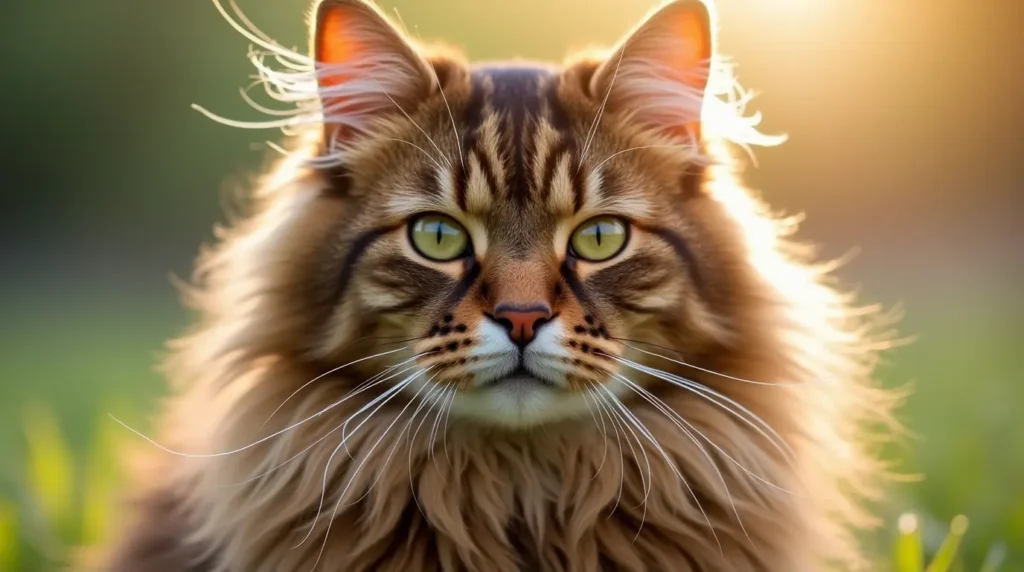
While Maine Coon cats are generally healthy, their large size does make them prone to certain health conditions. Being aware of these risks can help you take steps to prevent or manage them.
Hip Dysplasia
Maine Coons are prone to hip dysplasia, a condition where the hip joints don’t develop properly, leading to pain, discomfort, and sometimes arthritis. Regular vet checkups and a healthy diet are essential to monitoring this condition.
Hypertrophic Cardiomyopathy (HCM)
Hypertrophic cardiomyopathy (HCM) is a heart condition that affects many large cats, including Maine Coons. This disease causes the heart muscles to thicken, making it harder for the heart to pump blood. Regular checkups can help detect early signs of HCM.
7. The Lifespan of Maine Coon Cats: Does Their Size Affect Longevity?
Despite their large size, Maine Coon cats generally have a long lifespan compared to other breeds.
- Average Lifespan: On average, Maine Coons live between 12 to 15 years, and with proper care, some can even reach 18 years or more.
- Factors Affecting Lifespan: Although large size can sometimes contribute to health issues, a healthy diet, regular exercise, and annual vet checkups will ensure your Maine Coon lives a long and healthy life.
8. The Personality of Maine Coon Cats: A Gentle Giant
Despite their large size, Maine Coons are known for their friendly and affectionate nature. These cats are not just big in size—they have big hearts as well.
- Affectionate Companions: Maine Coons are incredibly social and love spending time with their human families. They often follow their owners around the house and seek attention.
- Good with Kids and Other Pets: Their gentle and patient nature makes them fantastic companions for children and other pets, including dogs. Maine Coons are often described as “dog-like” due to their loyalty.
Related: Maine Coon Cat Orange: Discover Why This Color Makes Them Unique
9. Conclusion: The Majestic Maine Coon Cat
In conclusion, the large size of Maine Coon cats is the result of a fascinating combination of genetics, evolutionary adaptations, and slow growth patterns. Their majestic size, combined with their playful personalities and affectionate nature, makes them a popular choice for cat lovers around the world.
Whether you’re a current Maine Coon owner or are considering adopting one, understanding the factors behind their size can help you provide the best care for your feline friend. With the right diet, exercise, and veterinary care, your Maine Coon can grow into a strong, healthy, and affectionate companion that will be by your side for many years.
FAQs About Maine Coon Cats and Their Size
- How big do Maine Coon cats get?
- Maine Coons can weigh between 13-20 pounds (5.9-9 kg) and reach lengths of 30-40 inches (76-101 cm).
- Why are Maine Coon cats so big?
- The large size is due to a combination of genetics, evolutionary adaptations for cold climates, and their slow growth process.
- How long does it take for a Maine Coon to reach full size?
- Maine Coons typically reach their full size between 3 to 5 years of age.
- Can I make my Maine Coon grow bigger?
- While genetics determine their ultimate size, you can help your Maine Coon grow healthy and strong by providing a balanced diet, plenty of exercise, and regular vet checkups.
- Are large Maine Coon cats prone to health issues?
- Yes, large Maine Coons can be prone to conditions like hip dysplasia and heart disease, which is why regular veterinary visits are essential.
- What’s the average lifespan of a Maine Coon?
- Maine Coon cats typically live between 12 to 15 years, but with proper care, they can live longer.
- Are Maine Coons good family pets?
- Absolutely! Their friendly, social nature makes them excellent companions for families with children or other pets.
Call to Action:
If you’re considering adopting a Maine Coon cat, be sure to research their needs and understand the care involved in keeping these majestic felines happy and healthy. Leave a comment below with your thoughts or any questions you have about Maine Coon cats, and share your experience with this wonderful breed!




